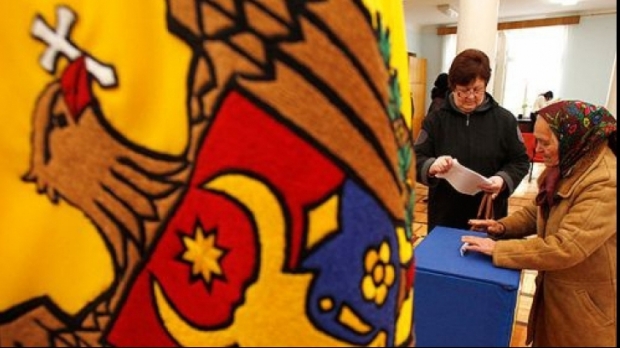By Vladislav Șaran (Independent Analytical Center “Spirit Critic”)
On 24 February, citizens of the Republic of Moldova were invited to express their right to vote having a choice between the old political class and new politicians. Looking at the results, the new Parliament will have 4 political parties: namely, the Socialist Party (PSRM) (35 mandates), Democratic Party of Moldova (PDM) (30 mandates), the Election Bloc ACUM (or Electoral Block NOW Platform DA and PAS) (“Acum” meaning “now” in Romanian) (26 mandates), Șor Party (7 mandates) and 3 independent candidates.
How did these parties succeed in persuading the electorate? PSRM ideology is based on Russian pro-rhetoric and nostalgia after Soviet times. The campaign newspaper “Socialists” has been widely distributed on the streets of Chisinau and through Moldovan villages. Socialist President Dodon promoted himself as the sole defender of the statehood of the country and a loyal friend of the Russian Federation.
PDM was noted by raising wages in the budgetary sphere, through infrastructure projects, such as road construction, and various social projects. However, PDM was strongly criticized for various acts of corruption during the last 8 years, monopolizing almost all media and weakening all state institutions in order to control them.
ACUM bloc, have positioned themselves as new political elite who will fight both oligarchs PDM and pro-Russian political forces from PSRM. Leaders of this bloc, Maia Sandu and Andrei Nastase, did not have many financial resources, so they had to collect donations from their sympathizers. Although they had a modest electoral campaign, Sandu and Nastase were more convincing during the debates than their opponents and brought new people to the party with the hope that they will not become as corrupt as their predecessors. It is also worth noting, Maia Sandu succeeded to massively win the votes of Moldovans abroad, especially of communities in the USA and Western Europe.
Șor Party, earned its popularity thanks to its founder Ilan Shor, a successful businessman and since 2015 elected mayor of the Moldovan city of Orhei. Despite the fact he is currently under house arrest for alleged fraud after being condemned in the controversial $1 billion bank fraud scandal, Shor carried out several infrastructure projects in the city where he is a mayor, impressing especially the rural electorate. Șor Party candidates were presented with extravagant electoral promises, such as the reopening of kolkhozs in some villages of Moldova, launching a direct flight from Moldova to USA, or establishing the death penalty for particularly dangerous criminals.
The main novelty in these elections has been the new mixed electoral system, where deputies are elected simultaneously in a single national constituency and in 51 uninominal constituencies. In addition, voters had the opportunity to participate in a consultative referendum aimed at reducing parliamentary deputies from 101 to 61 deputies, and the introduction of the possibility of dismissing deputies who do not properly fulfill their obligations. In addition, the governing party, the PDM, succeeded in cancelling the ban on electoral campaigning on the day of election and the day before. Thus, party activists had the right to share promotional material just outside the polling station. This broad freedom to influence the voter clearly favored the major parties with more financial resources for self-promotion.
The main election surprise was the fact that, given the Central Electoral Commission’s press release announcing that national law does not provide any ban on the transportation of citizens to polling stations, hundreds of citizens from the Transnistrian region were transported organized by buses and minibuses to several polling stations opened on the right bank of the Dniester. Although most Transnistrian citizens did not want to recognize who organized their transport and whether they had received money for it, some Transnistrian voters did suggest to local journalists they has been urged to vote for PSRM, with the promise of receiving between $5 and $20 (per person).
The elections have not been decisive. It is not clear if a parliamentary majority will be formed or if the elected parties will not be able to come with an understanding and there will be need snap parliamentary elections soon. Vladimir Plahotnic, PD’s leader and also one of the most influential politicians in the country, stated that he is pleased with the results of the elections and is ready immediately to start negotiations with the other parties. Maia Sandu and Andrei Nastase, leaders of the ACUM bloc, have publicly excluded any alliance with the other 3 elected parties. The same as the Sor Party. PSRM, instead, will only make a decision about any possible coalition talks after the validation of the electoral ballot.
One of the most likely scenarios, however, is that PD, currently the most influential party in the country, will be able to draw on its side the Sor Party and some socialist deputies and therefore avoid early elections. If that is the case, the ACUM bloc, the main “winner” in the elections, will have to settle with leading the opposition, hoping for better times in the next election.
Photo source: https://media.rtv.net/image/201411/w620/moldova_alegeri_80737200_69785100_03118700.jpg


